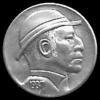-
Recently Browsing 0 members
- No registered users viewing this page.
-
Similar Content
-
- 44 replies
- 1,791 views
-
- 16 replies
- 1,081 views
-
- 10 replies
- 2,136 views
-
- 72 replies
- 4,289 views
-
- 10 replies
- 984 views
-





Recommended Posts